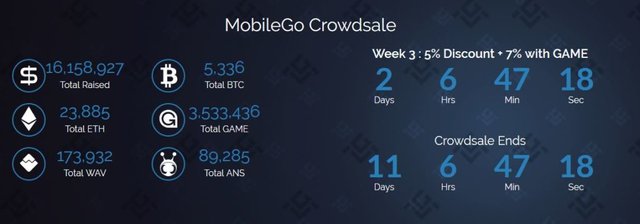
ICOs Are Taking the Blockchain Space by Storm!
With the growing popularity and interest in blockchain technology, it's no surprise that innovative and forward-thinking start-ups want part of the action. Crowdfunding has always been a popular method of gaining industry awareness and vital funds, but with the innovation of blockchain technology and cryptocurrencies running atop of it, there seems to be a new method of raising funds for a new business.
Enter Initial Coin Offerings (ICOs), an unregulated method of crowdfunding that enables the use of not just fiat, but cryptocurrencies as well. Numerous innovative start-ups are launching with ICOs to attract investors and media attention to raise capital. Once completed, their own self-made cryptocurrency or token is issued back to investors.
What is the Process Behind ICOs? How Do Investors Benefit?
The start-up will release a whitepaper, which gives information about the overall purpose of the project, including:
- The amount of funds needed for the project
- What the project desires to accomplish and which problems it will solve
- The technical schematics, information on its blockchain and features that make it unique
- A native cryptocurrency or token that will used and issued to investors
- Details of the ICO and how long it will run for, funding limits, etc.
Once the whitepaper is released, supporters and enthusiasts invest in the ICO with fiat or popular digital currencies, such as Bitcoin or Ethereum. The ICOs usually last for several weeks, although each one may vary.
In return for contributing to the ICO, the investor is given a percentage of the start-up project's cryptocurrency or tokens (at a discounted price) based on the amount originally invested. For example, if an investor contributes 10% of the total amount raised, then 10% of the cryptocurrency or tokens in circulation would usually be issued to that particular person.
A popular way for ICO start-ups to attract more investment is to give the incentive of offering discounts and adding a bonus for investors if they invest before a deadline.

Ethereum's Beginning, and Projects Using Ethereum's Blockchain Features
This popular way of crowdfunding has been proven to be an extremely prosperous method to launch projects. Ethereum began with an ICO, and at one point its tokens (ETH) were trading at around $0.40. Ethereum now trades at around the $85 region, and it recently surged to $100.
Due to Ethereum's core function being an application builder using Smart Contracts, many projects have started building applications using Ethereum's blockchain. With ICOs being a proven and effective method to raise capital relatively fast and without regulation, many of these Ethereum-based projects simply issue a token to investors, rather than a cryptocurrency.
Not all projects with a ICO use Ethereum's blockchain.
Some popular ongoing/current ICOs include TEZOs, MobileGo, SONM, METAL, and many launched cryptocurrencies with completed ICOs, such as Ethereum, Lisk, Waves, and Stratis. Due to its unregulated nature and scams being exposed, many are sceptical of the majority of projects using ICOs.
Fraudulent ICOs
Lack of rules and regulation add a degree of risk to this popular and growing method of raising capital. Incidents with Ethereum and the DAO hack still leave a bitter taste in crypto enthusiasts' mouths. Although that was due to a vulnerability in the code, other risks include Ponzi schemes running rampant, low-quality software, and token price manipulation, which may mean your investment turns into dust.
Research thoroughly and only invest what you can afford to lose!
Aragon Network, a Sheriff will be coming to town on the Ethereum blockchain to round up all these wild ICOs and enforce regulations on smart contracts.
Downvoting a post can decrease pending rewards and make it less visible. Common reasons:
Submit
I am happy to resteem your work. I highly recommend it. Thanks for the post.
Downvoting a post can decrease pending rewards and make it less visible. Common reasons:
Submit